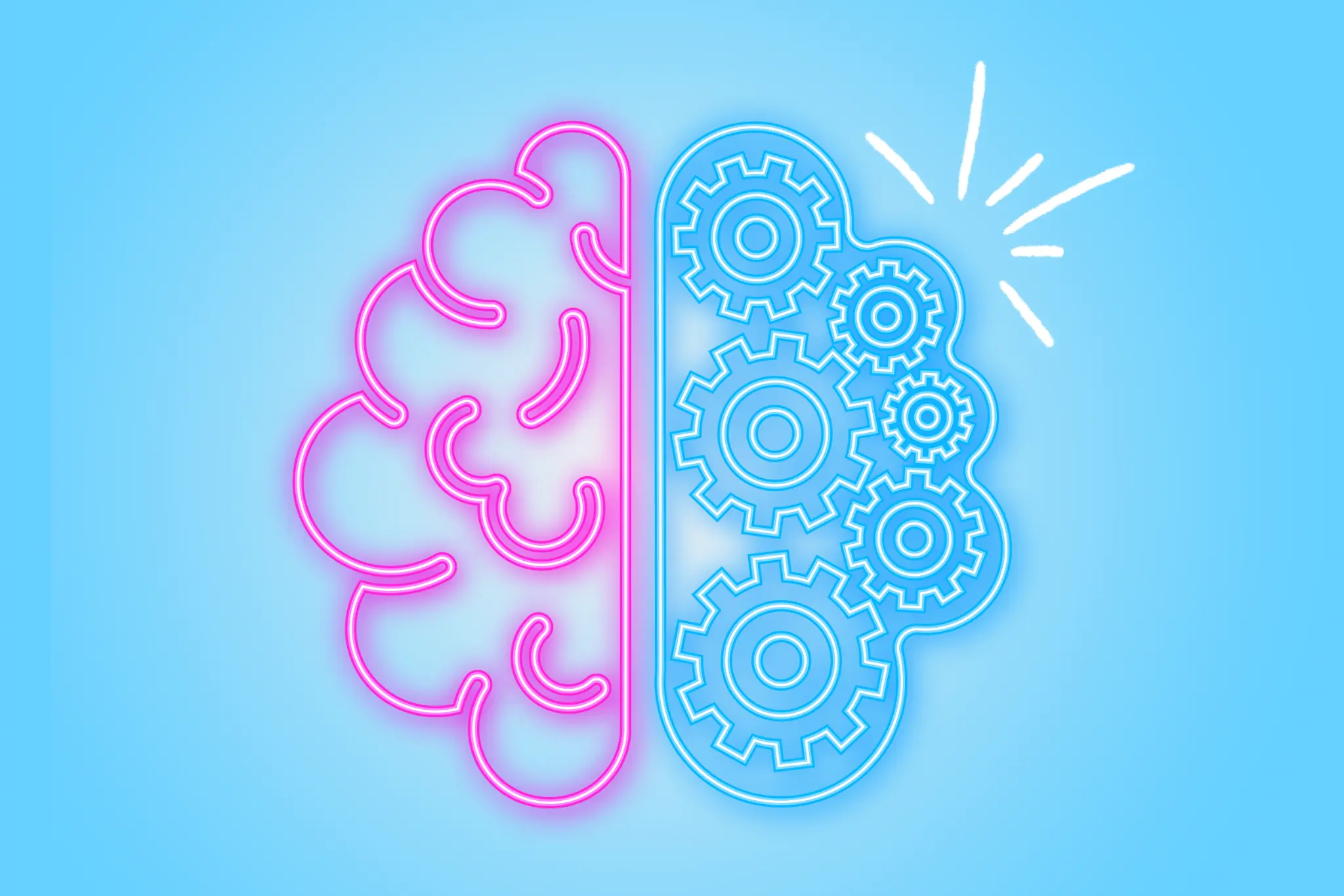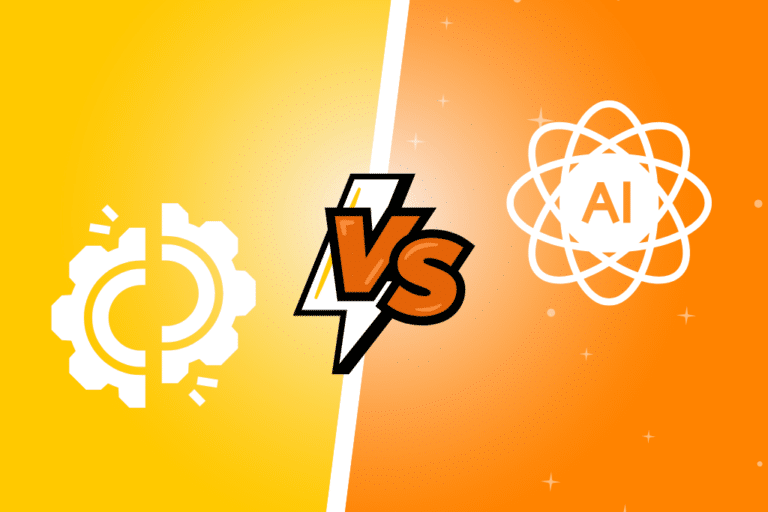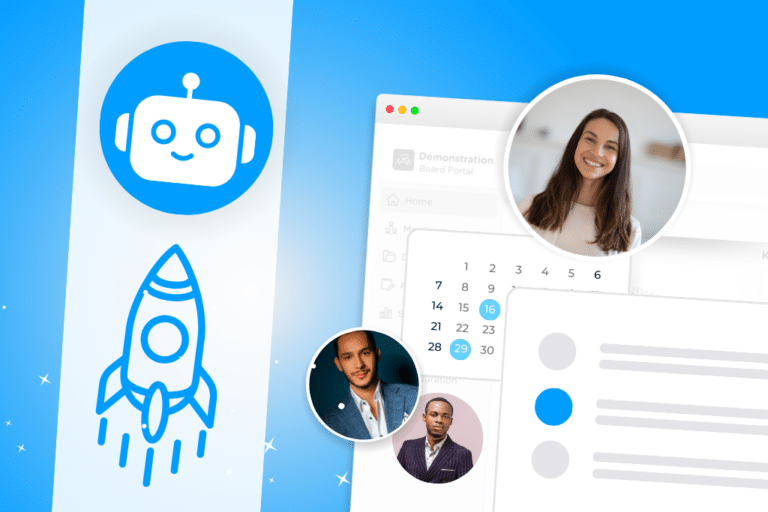Listen to this article:
Artificial intelligence has caused something of a stir in recent years. It’s not always easy to discern between real-world applications and illusions of the sci-fi world. So, to help you get your bearings, here is a precise definition of AI, explaining the different ways it can be used, particularly when it comes to contract management.

Artificial intelligence (AI) defined
Artificial intelligence is traditionally defined as the set of skills, knowledge and techniques aimed at developing computer programs that can simulate human intelligence.
Practically speaking, this means that programs labelled as “artificial intelligence” can analyze data just as you and I would: by picking out key information from a text, and comparing and contrasting data to draw conclusions. And they can even develop their analytical capacities in the light of new data. In fact, machine learning plays a key role in artificial intelligence. It gives programs flexibility, allowing them to adapt to an ever-shifting landscape of challenges. Just like a child learning, artificial intelligence constantly memorizes and processes new scenarios and adapts its operation accordingly.
➡️ Read also: Artificial Intelligence is Increasingly Used in the Legal Profession
Some background and examples
This technology has only become commonplace fairly recently. But the term “artificial intelligence” is by no means new. In fact, the first person to use it was Alan Turing — the father of computer science — in the 1950s. According to Turing’s definition, a machine is said to demonstrate artificial intelligence (AI) when a person is unable to distinguish between the machine’s response and that of a human being. This imitation of man by machine is therefore deemed to be a form of intelligence.
Building on the general applications of computer science, the aim of AI is to make people’s lives easier by automating time-consuming tasks. It can be used both in everyday life and at work in a business setting.
The most common examples of AI applications include:
- voice recognition, used by applications such as Siri (Apple) or Alexa (Amazon);
- image recognition, a cutting-edge technology, easy for anyone to try out on Google Lens;
- optical character recognition (OCR), which detects and reads the text in an image.
This list is far from complete: the possibilities of artificial intelligence are endless! In particular, this technology provides valuable assistance in the field of contract management.
Artificial intelligence and contract management: a winning combination
Contract management is one of the biggest challenges faced by companies today. It is a complex operation that encompasses a series of time-consuming tasks, each requiring meticulous attention to detail.
A contract is, after all, a living, ever-evolving document with a long lifecycle: from the initial drafting stage to the monitoring of its execution and the deadlines involved, it can require attention years after signing. What is more, contracts sometimes need to be amended. Whatever their nature, these legal documents pass through many hands, both within and outside the company. This requires smooth and seamless organization and communication. Any oversight or mistake can put the entire company at risk, with the potential to land it in hot water both legally and financially.
Artificial intelligence is an effective solution to most of the challenges involved in contract management. Working on a number of processes becomes significantly easier and more secure; in particular:
- searching for key information in contracts (deadlines, important clauses, amounts, and so forth);
- identifying the risks and opportunities inherent in contracts;
- monitoring their performance by producing statistical analyses and dashboards;
- contract drafting, with the help of smart templates.
All of these technical capabilities allow you to save time while averting risks that could cost your company dearly: non-compliance with one or more contracts, unchecked tacit renewals, and incorrect amounts, to mention but a few.
➡️ Read also: Digitalizing Legal Departments: Tips on Implementing Your Legal Tech
How the DiliTrust solution uses artificial intelligence to automate contract management?
DiliTrust’s Contracts module is a contract management solution that facilitates contract processing at every stage of the contract lifecycle: from drafting, negotiations, validation and signing, to execution and renewal. Throughout the document’s lifecycle, algorithms use artificial intelligence to make the contract easier to process, read and monitor in the long term.
One of the solution’s most popular features is the contract summary sheets it can produce, which lay out all the most important information to view at a glance. The generation of these summaries can, of course, be configured to suit the specific requirements of each company and type of contract.
With its smart detection of key information, the solution also flags up any looming deadlines, non-compliant clauses or unusual amounts. These features lighten the load for legal experts and operational staff, who no longer have to carefully comb through contracts for fear of missing a crucial detail.
Last but not least, the AI developed by DiliTrust also generates key statistics in real time, giving you a comprehensive picture of the status of all contracts or certain categories of contract. Having this overview gives you better control over contracts and makes decision-making that much easier.
In short, artificial intelligence is worlds away from being a technological gimmick! Its algorithms effectively tackle the problems commonly faced by companies, making their work easier and more secure, particularly in the field of contract management.
Want to find out more? Get in touch with our experts!


